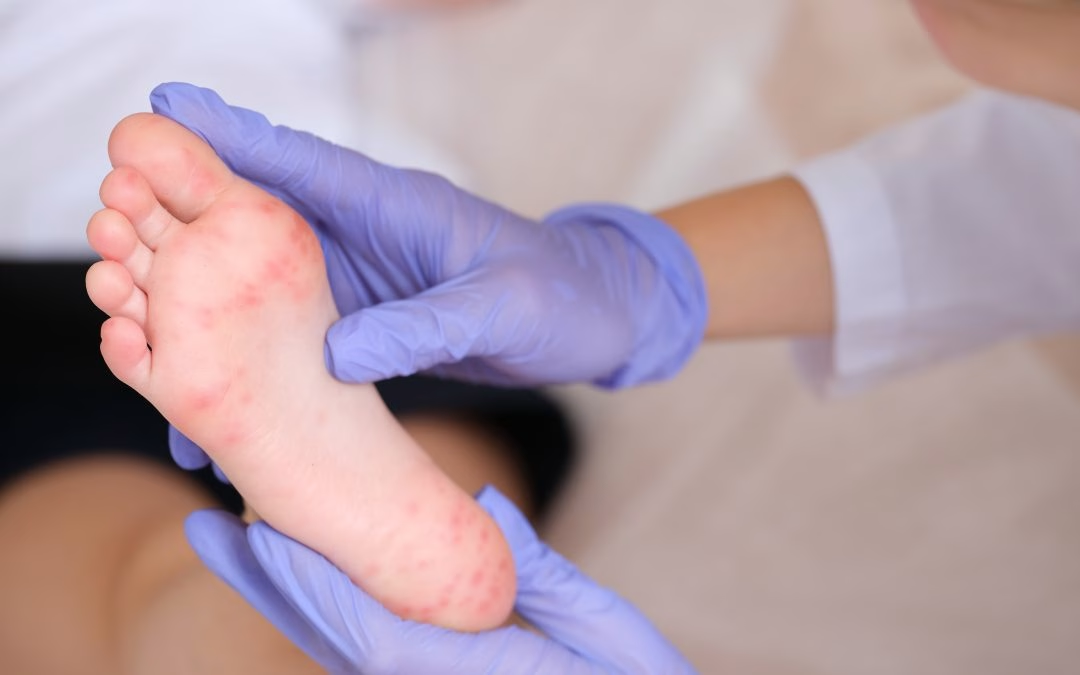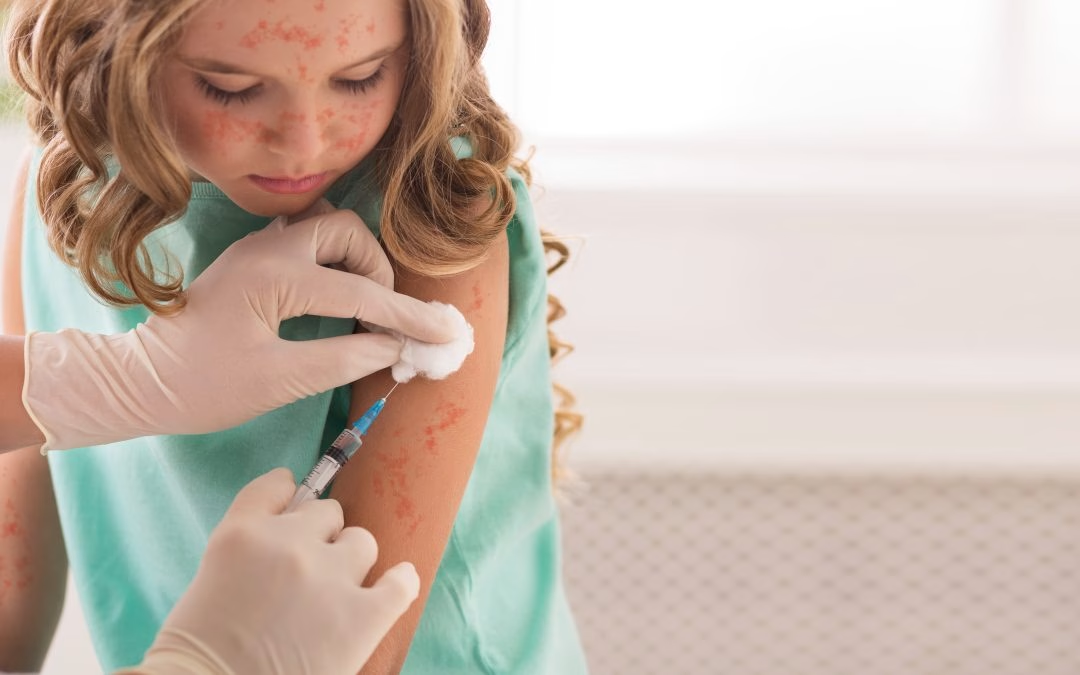
Kids love to interact with everything around them. Plastered to the snake tank while you grab some lizard food from Cold Blooded & Bizarre, running immediately to the toys at school, and somehow get into the flower pot at home. While that curiosity is admirable, it also exposes them to sickness. One such sickness this season is hand, foot, and mouth disease (HFMD), but don’t worry, as good hygiene practices, such as washing hands frequently, help prevent HFMD.
For both parents and children, hand, foot, and mouth disease (HFMD) can be a worrying experience. As a common viral infection that spreads quickly among young kids, it’s perfectly normal to have concerns about how long the symptoms will last. If your child is home from daycare or school, or an adult in your home is affected, the duration of symptoms is often top of mind. So, what’s the expected duration of hand, foot, and mouth disease?
Let’s break down the typical timeline of the illness, what you can expect, and when you might need to visit our urgent care center.
Expected Duration of HFMD
How long does hand, foot, and mouth disease typically last? Most cases last between 7 and 10 days. This duration includes the time required for the body to fight the virus and for symptoms to clear up. The illness usually begins with a fever, followed by a characteristic rash on the hands, feet, mouth, and sometimes the buttocks. Additionally, children may experience painful mouth sores, making it uncomfortable to eat or drink.
While symptoms are usually mild, they can still be quite distressing for young children who might not fully comprehend why they feel unwell. It’s important to note that, although HFMD can be uncomfortable, it typically resolves without the need for specific medical treatment.
What Are the Symptoms of HFMD?
HFMD progresses in distinct stages, each lasting a few days:
- Fever: The first symptom of HFMD is often a fever, which can be accompanied by sore throat and reduced appetite. The fever typically lasts 2-3 days and is usually mild to moderate, though in some cases, it may be higher.
- Rash and Blisters: After the fever subsides, a rash or blisters will usually develop on the hands, feet, and sometimes on the buttocks. The rash often looks like red spots or small, fluid-filled blisters. This rash can last anywhere from 5 to 7 days.
- Mouth Sores: Painful sores inside the mouth are another common symptom of HFMD. These sores can make it difficult to eat or drink, which is why keeping the patient hydrated is especially important.
What Factors Affect Recovery?
The duration of HFMD symptoms can vary depending on several factors, including the patient’s age and overall health:
- Age: While HFMD is most common in children under 5, older children and adults can also get it. Symptoms in adults are usually milder and may not last as long as in younger children.
- Hydration: Staying hydrated is crucial during recovery. Mouth sores can make it difficult to drink fluids, which can lead to dehydration. Encourage small, frequent sips of water or cold drinks to prevent dehydration.
- Immune System: A weakened immune system can prolong the recovery time. Children with compromised immune systems may take longer to recover from HFMD, and symptoms may be more severe.
When Should I Visit AFC Monroe Rd?
While most cases of hand, foot, and mouth disease typically clear up within 7 to 10 days, there are times when seeking medical attention is crucial. If symptoms last longer than 10 days, if your child shows signs of dehydration (such as not urinating or having a dry mouth), or if they are unable to eat or drink due to painful mouth sores, it’s advisable to head to our urgent care.
Additionally, if your child has a high fever (exceeding 102°F) or seems to be in severe pain, a healthcare professional can evaluate their symptoms to ensure there are no complications.
How Can I Help My Child Recover Faster?
We understand that you want the best for your child, while there is no specific treatment for HFMD, these are some steps you can take to make your child more comfortable while their body fights off the virus:
- Rest: Encourage your child to rest as much as possible. This will help their body conserve energy to fight off the virus.
- Pain Relief: Over-the-counter medications, like acetaminophen or ibuprofen, can help reduce fever and relieve pain from mouth sores or a sore throat. Be sure to follow the dosage instructions on the medication.
- Hydration: Offer plenty of fluids, like water, cold milk, or ice pops, to keep your child hydrated. Avoid acidic or spicy foods, as these can irritate mouth sores.
While HFMD can be a difficult illness to manage, the good news is that it typically resolves on its own within about a week. By keeping your child comfortable, well-rested, and hydrated, you can help them recover as quickly as possible. Bring your child to AFC Monroe Rd for fast, effective, and compassionate care you can trust.


